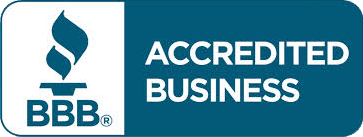Frequently Asked Questions About Surety Bonds
How to apply for a surety bond?
| Unsure about which kind of bond you need? The following questions will help you. | ||||||||||||||||||||||
| ||||||||||||||||||||||
What is a surety bond?
A surety bond is required by law in every state for numerous professions, industries, court actions, and more. In its most simple sense, a surety bond is a guarantee. It is a three-party agreement between you (the Principal), the Surety and the entity requiring you to obtain a bond (the Obligee). A surety bond guarantees that you will comply with certain rules or regulations, or pay someone, or perform according to a contract. If, for any reason you do not live up to the agreement, the Surety will step in on your behalf and then come back to you for restitution. A surety bond can also often work as a prequalification tool to ensure that you meet certain business standards.
How do I know if I need a surety bond?
It depends on what kind of surety bond you need. For instance if you are applying to become a mortgage broker in the state of Georgia, the Department of Banking and Finance requires that you submit your surety bond to them prior to receiving your license. Check with the state, county, city, or federal government for the bond requirements applicable to your need.
What is the difference between surety and insurance?
Insurance is a two party relationship where the insurance company assumes the risk of the principal; whereas a surety bond is a three party relationship where the principal will absorb the risk. A surety bond protects the obligee and not the principal. Where insurance protects you against a risk, surety bond guarantees that you will fulfill an obligation.
How much does a surety bond cost?
There is not a set formula for determining the cost of a surety bond. Each bond differs in its guarantee and surety bond amount. In addition to the amount of the surety bond and its guarantee, underwriters will look at the applicant’s credit history, net worth and experience to determine the cost of surety bond. Depending on the bond, the underwriter may need to see personal and/or corporate financial statements to determine the surety bond price (the premium).
Can I get a ballpark quote?
Absolutely! Our Quick Quote feature can provide an estimated price range. The bond premium can vary anywhere from less than 1% of the bond amount to a maximum 20%, but generally, the premium will be somewhere in the .75% to 2% range. Again, an applicant's credit or financial background, experience, and the amount of risk the bond carries has much to do with this determination. In most cases a complete application will help us provide the most accurate bond quote for your specific needs.
You mentioned risk. What is that?
The risk is what the language in the bond is requiring. For instance some bonds require compliance of laws and regulations, while others may include payment of taxes or workman’s compensation payments to a state entity. The risk may also be in the form of non-performance of duties. Underwriters look at this risk as well as other factors to determine the premium amount that will be quoted. The risk most often is set and can't be altered and is determined by the obligee.
What does my credit history have to do with obtaining a bond?
Remember that a surety bond is essentially a financial guarantee. If for any reason you do not fulfill your obligation and the surety has to step in on your behalf, the surety will then come back to you for restitution.
How long does it take to get a bond?
SuretyGroup.com prides itself in prompt surety bond services. Once we have a completed surety bond application and any other required items, we can approve your surety bond in as little as 24 - 48 hours.
Who is the Obligee?
The obligee is the entity that is requiring the surety bond. For example, if you obtain a State of Georgia Liquor Bond, the State of Georgia is the surety bond obligee.
Where do I find the bond form I need?
We have a vast library of surety bond forms and in most instances we have the surety form you need. However, since there are literally thousands of surety bonds out there and not every obligee will notify us of any changes, there might be a few we don’t have. You can try an internet search or simply call the obligee to obtain the most recent surety bond form. You can also apply online and type a description of the bond you need and get the ball rolling.







